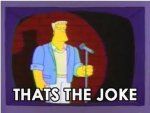woops
is not like other people
I'm thinking more of your Nietzscheian, magick-with-a-k, do-what-thou-wilt, Crowley/P-orridge types. As opposed to people who whinge on the internet about taxes on sugary drinks.
Oliver Sudden
AmtugumSsSrttpo nde7i aht rlgs7o:33rnoglco PhedSdM ·
I've just, belatedly, found that you can no longer get proper San Pellegrino with an adequate amount of sugar in it, due to the government's idiotic and regressive sugar tax. All you can get now is this garbage with "stevia" in it, whatever the fuck that is, and it tastes like a tramp's arse.
Shit like this makes me want to go full libertarian. If I want to juggle live hand grenades while ripped to the tits on 300 micrograms of Hofmann's finest then that's my own fucking lookout, OK?
6Ravi Juneja and 5 others
33 Comments
Like
Comment
Comments


